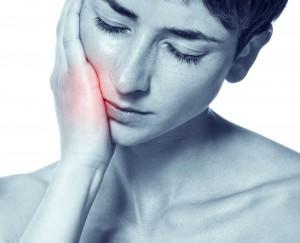These are the facts:
Dental cavity is the most common cause of tooth pain or toothache. Following dental cavity is gum disease as the second most common cause of toothache. It is also a fact that tooth pain can be caused by a problem that does not necessarily originate from a tooth or the jaw. For pregnant women, non-emergency dental treatment is ideally recommended during the second trimester, if it can’t be delayed. Otherwise, all dental treatment should be after childbirth. Most over-the-counter medications such as ibuprofen like Advil or Motrin should be taken on a schedule to effectively relieve pain.
 What is Tooth Pain or Toothache?
What is Tooth Pain or Toothache?
Tooth pain is that pain felt around the teeth or jaws resulting from a dental condition. While most cases of toothaches are caused by tooth or gum problems, there are cases when disorders of the jaw joint can cause toothache. Sinus infection can also mimic a toothache.
The degree of pain caused by toothache can range from chronic and mild to sharp and excruciating. Temperature or chewing can aggravate tooth pain. To determine the cause and source of pain, a thorough oral examination and dental X-rays may be ordered by the dentist to rule out other non-dental problem.
Types of Tooth Pain
There are two basic types of tooth pain, namely: sharp and dull pain.
Sharp Tooth Pain
This may be caused by many factors including:
-
Presence of decay at the gum line
-
Space between a crown or filling at the gum line
-
A crown or filling that is too high when chewing
-
Broken cusp of a tooth
-
Grinding and clenching
-
Cold temperatures
This type of pain does not last long and rarely lingers, and often triggered by the above factors. Pain relief may be achieved by repairing broken cusp with a crown; adjusting the crown or filling that is too high when chewing; checking and removing any decay or faulty crowns or fillings at the gum line. Sharp tooth pain should always be consulted because sharp tooth pain can lead to dull pain. If the sharp pain is not confined to single spot and if it occurs only once in awhile, it’s most likely nothing to be concerned about.
Dull Tooth Pain
This is the more serious type of pain and this usually means the nerve inside the tooth has been irreversibly damaged. It is usually triggered by hot temperature such as hot coffee or soup. Pain will be felt for a significant period of time. Dull tooth pain usually originates from the nerve/pulp of the tooth. To relieve the problem, root canal therapy is usually required.
Alternative Home Remedies
Ideally, all types of tooth pain should be consulted to a dentist for the proper treatment. However, if a visit to the dentist is not immediately possible, you may try some of the tested home remedies that may provide temporary relief from the pain, such as:
-
Avoid chewing in the area of pain
-
Minimize exposure of cold or hot food or drinks to the affected tooth area
-
Acetaminophen and other pain relievers (Tylenol) and aspirin can help reduce pain
-
Rinsing the mouth with warm water and brushing and flossing thoroughly can help remove food particles or debris that can cause further irritation
-
Oral pain relief products containing benzocaine (Anbesol and Orajel) can provide temporary relief to the affected tooth or gum area.
It should be noted that f you observe any swelling that is rapidly growing, a visit to the emergency room is necessary as such kind of dental problem should not be dismissed or ignored.
- St. Lawrence Dentistry Looks Forward To St. Patrick’s Day! - March 12, 2025
- Understanding Dental X-Rays and Radiation: What You Should Know - January 13, 2025
- Happy New Year from St. Lawrence Dentistry! - December 30, 2024









